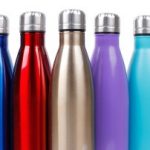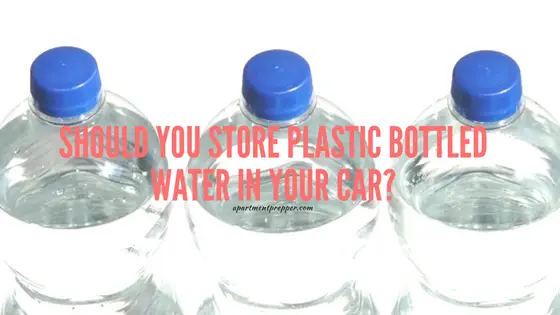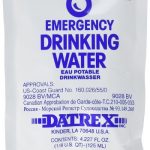This post is by Bernie Carr, apartmentprepper.com
We all know you should have some water stored in your car for emergencies or in case you get stranded. A lot of readers wonder, “Should you store plastic bottled water in your car?”
Issues regarding storing water bottles
BPA
Water itself does not expire, according to the FDA. However, common plastic water bottles contain BPA. BPA stands for bisphenol A, a chemical used in producing plastic and resins. It can leach into water especially if exposed to heat. BPA has been linked to reproductive, brain, behavior problems, high blood pressure, and heart disease among other issues. Infants and children are particularly susceptible. If you live in an area where it is hot almost six months out of the year, compounds the problem
Fire hazard
Another potential problem with storing plastic water bottles in your car is the danger of fire. Apparently, a water bottle, if left in a sunny area in your vehicle, under certain conditions can function as a magnifying glass. A beam of light passing through the bottle can actually start a fire, according to CBS News.
Algae or mold
Because we live in a hot and humid area, I have noticed stored water develop algae or mold in plastic containers. I have not seen this happen in glass or other materials. In an emergency, the water may still be drinkable (instead of dying of thirst) however you should run it through a water filter.
Freezing
Stored water will freeze in the car during the winter.
Best tips to store water in your vehicle
Use a BPA-free container
Just as you store water in BPA free containers for your home, purchase one for your car such as the Aqua-Pak 5 gallon container
Water pouches
These Datrex water pouches have a 5-year shelf life and are used by the Coast Guard.
Stainless steel containers
 You can also store a couple of stainless steel bottles with water for each person in your family if you prefer.
You can also store a couple of stainless steel bottles with water for each person in your family if you prefer.
Glass bottle
They are not as portable but a glass water bottle eliminates BPA concerns. However, it must be stored in the trunk and cushioned against hard surfaces or it will break.
Rotate frequently
If you must store plastic water bottles, rotate them frequently. I do have some plastic bottles in the trunk of my car. The CDC recommends replacing stored water every six months, however, I rotate them more frequently at every three months.
Water filter backup
I’d recommend having a backup water filter on hand, such as the LifeStraw, in case you need to obtain water outdoors. I use the Berkey Sport Bottle whenever I travel since a single filter can process 110 gallons of tap water or 27.5 gallons of questionable water and is BPA free.
Use an insulated cooler
To avoid having your water freeze immediately as soon as cold weather hits, store water in a cooler in your trunk. I’ve seen temperatures drop to -15, and the water stayed liquid in the cooler. They will still eventually freeze as temperature drops, however, the cooler keeps it from freezing longer.
Final tips
- Do not store water near anything that emits fumes, such as bleach or gasoline, as they can contaminate your water.
- Keep stored water away from sunlight.
To answer the original question, should you store plastic bottled water in your car? The answer is yes, as long as you rotate your supply frequently. In addition, you should also consider other types of packaging for your water.
About the author:
Bernie Carr is the founder of Apartment Prepper. She has written several books including the best-selling Prepper’s Pocket Guide, Jake and Miller’s Big Adventure, The Penny-Pinching Prepper and How to Prepare for Most Emergencies on a $50 a Month Budget. Her work appears in sites such as the Allstate Blog and Clark.com, as well as print magazines such as Backwoods Survival Guide and Prepper Survival Guide. She has been featured in national publications such as Fox Business and Popular Mechanics. Learn more about Bernie here.



